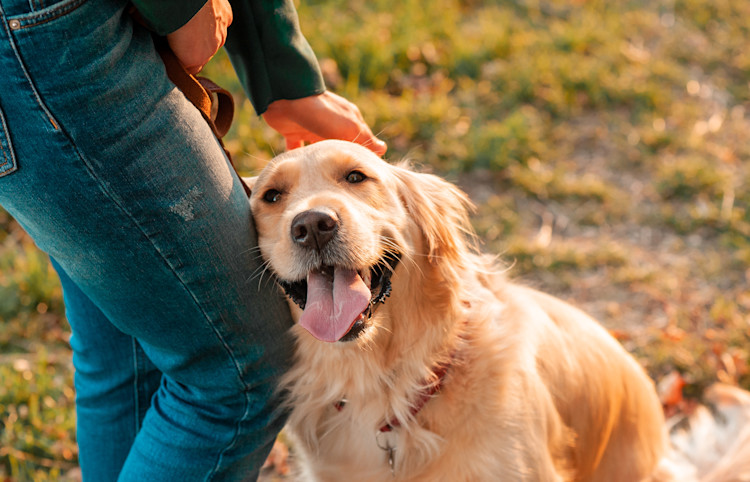
Dog Barking at Night: How to Understand Canine Sleep Issues
Share
The serene nighttime typically brings a restful sleep for many, but for some pet owners, it is often disrupted by the vexing dog barking at night. If you've ever found yourself wondering why your furry friend seems restless under the moonlight, you're not alone. Understanding why dogs bark at night can be quite challenging, yet it is crucial for your canine companion's well-being and your peace of mind.
Dog barking at night is not just a trivial nuisance; it might be a sign of an underlying issue. Whether its a disturbance causing it, such as loneliness, fear, or unmet energy needs, or simply an untrained habit, addressing this problem is vital for both you and your pup's health. Are you ready to dive into the possible reasons behind night-time barking and its solutions?

Common Causes of Dog Barking at Night
1. Loneliness and Anxiety
Dogs are social animals and thrive on companionship and attention. When left alone, especially at night, they can become anxious or lonely, leading them to vocalize their discomfort. This is particularly common in puppies and dogs adopted recently but can affect all dogs under the wrong circumstances. Taking steps to reduce your dogs anxiety, such as maintaining a cozy sleeping area, can be beneficial. For more insights into handling anxiety, you might want to look at our dog barking solutions.
2. Lack of Physical and Mental Exercise
An under-exercised dog will likely be restless at night. Without sufficient physical and mental stimulation during the day, dogs may use nighttime to release pent-up energy through barking. Consider integrating engaging play sessions into their daily routine or trying out new training tricks to challenge their minds. Learn more on our page detailing effective dog training tips.
3. Environmental Noises and Barking Triggers
Your dogs keen sense of hearing can expose them to various noises that are undetectable to human ears. These can range from rustling leaves to distant sirens or wildlife sounds, which might provoke a response from your dog. Observing and mitigating these external factors are crucial. For more ideas on how to help your dog remain calm in such situations, consider exploring our dog barking control devices.
4. Medical Conditions
If your dog has suddenly begun barking at night without evident environmental or psychological changes, a visit to the vet may be warranted. Conditions such as dementia in older dogs or other health ailments can often trigger night barking. Always prioritize your pets health by scheduling regular veterinary check-ups.
Tips to Manage Your Dogs Night Barking
Create a Comfortable Sleeping Environment
Ensuring your dog has a comfortable, quiet sleeping area can significantly reduce nighttime barking. Including favorite toys or a cozy bed can provide them with a sense of security. A relaxed dog is less likely to bark incessantly. Our article on dog barking training provides additional strategies to cultivate tranquility for your pup.
Train Your Dog to Develop Better Nighttime Habits
Training involves setting a routine that helps signal to your dog that it is time to sleep. Techniques such as crate training or positive reinforcement for quiet behavior can work wonders. Patience and consistency are vital. Our training tips from AKCs expert dog training can help you get started.
Maintain a Consistent Routine
Dogs thrive on routine, and maintaining consistent feeding, walking, and sleeping schedules can help alleviate anxiety-based barking. Experiment with different routines until you find what best suits your pets needs.
Conclusion
Solving the puzzle of dog barking at night requires understanding and addressing its root causes. By promoting a comfortable and reassuring environment, enhancing physical and mental stimulation, and through dedicated training, the nights can once again be serene for both you and your canine companion. Choosing to confront night barking with patience can profoundly impact your pets well-being and your households harmony.

Frequently Asked Questions
Why won't my dog stop barking at night?
Your dog may be experiencing anxiety, lack of exercise, or responding to external stimuli, which causes them to bark excessively at night. Addressing these factors specifically should help in alleviating the behavior.
Can diet affect my dog's nocturnal barking habits?
Absolutely! A proper diet can influence your dogs energy levels and overall mood. Ensuring balanced nutrition can help mitigate restlessness and night-time barking.
Is it okay to ignore my dogs barking at night?
While ignoring barking can be a training technique, consistent, excessive barking might indicate underlying issues that need addressing.
This article contains affiliate links. We may earn a commission at no extra cost to you.
